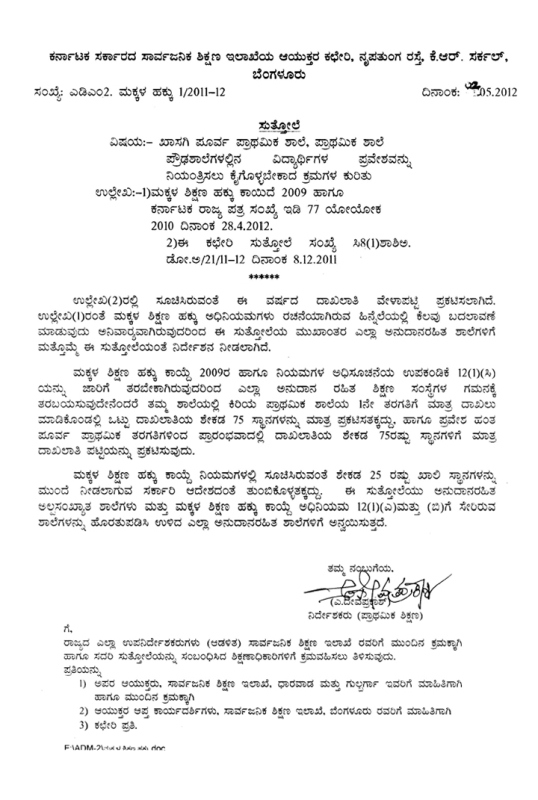
The circular comes in the backdrop of the state government notifying RTE rules in the state gazette paving way for immediate implementation of the Act in the state.
As per the Act, 25% of the seats in a class are to be reserved for children from weaker and marginalized sections.
The circular issued by the Department dated May 2, states that schools which have already finished admission processes for class I, must put out only 75% of those names and keep 25% of the seats vacant for weaker sections. It also states that the schools must put out the list of only 75% of the children who have passed Upper KG and promoted to class I.
As far as accommodating the children belonging to weaker sections in the 25% quota are concerned, the Department has ordered schools to wait until the next order from the government.
The rules do not apply to unaided minority schools and schools specified in the sections 12(1)(a) and (b) of the RTE Act, the circular states.
Earlier today, educational activists and representatives of likeminded organisations decided to appeal to the Chief Secretary and Commissioner of the State Education Department to relax the school admission time limit specified in the previous state circular in view of the recent developments taking place after the notification of RTE rules by the state government. They have also decided to press the government to instruct schools to keep admissions open for children eligible under the 25% quota provided by the RTE till June 1, i.e. the day of commencement of classes. The fresh circular from the Department is likely to give muscle to their demand.
Also Read: 'Keep admissions in schools open for weaker sections till June 1'








Comments
Add new comment